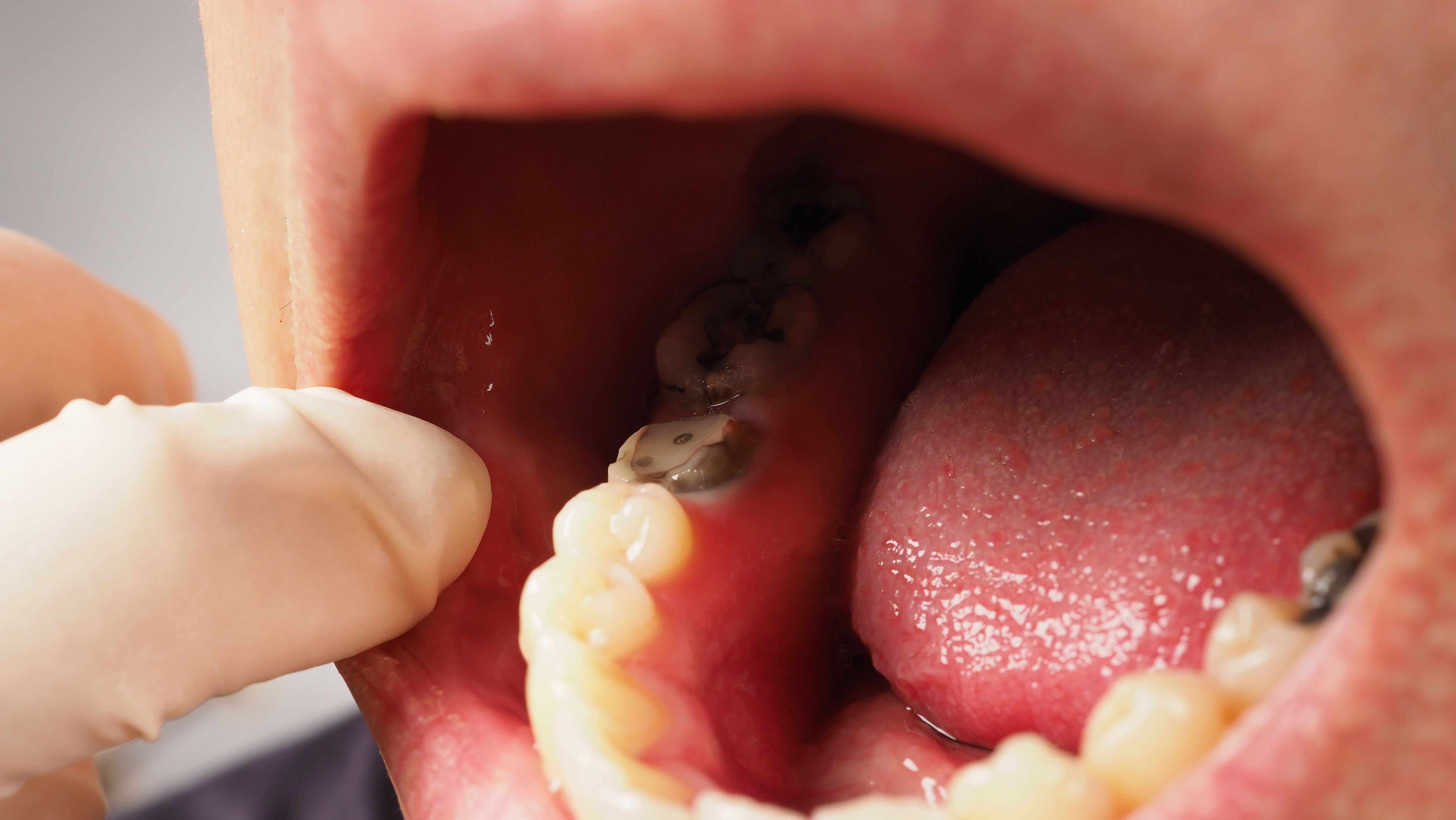The Importance of Root Canal Therapy in Saving Natural Teeth
Dental Implants Solutions
Maintaining a healthy smile is a priority for many of us. However, there are times when our teeth can become severely damaged or infected, putting their very existence at risk. In such cases, root canal therapy emerges as a crucial dental procedure, offering a glimmer of hope to save our natural teeth from extraction.
Root canal therapy, often surrounded by misconceptions and anxiety, is a highly effective treatment that aims to address severe tooth decay, infection, or trauma. It involves removing the infected or damaged pulp from within the tooth, meticulously cleaning the interior, and sealing it to prevent further complications. Patients can alleviate pain and discomfort and retain their natural teeth by opting for root canal therapy, ensuring a functional bite and a confident smile.
What is Root Canal Therapy?
Root canal therapy is a procedure to save a tooth that is infected severely. It is a highly specialized treatment aimed at removing the infected or inflamed pulp from within the tooth, cleaning the root canals, and sealing them to prevent further infection or damage.
The pulp is the soft tissue present at the center of the tooth. It consists of nerves, blood vessels, and connective tissue. When the pulp becomes infected due to deep decay, cracks in the tooth, repeated dental procedures, or trauma, it can cause severe pain and discomfort. If left untreated, the infection can lead to abscess formation, bone loss, and the potential loss of the affected tooth.
Root canal therapy involves several steps to treat the affected tooth effectively:
- Examination and Diagnosis: When you visit the dentist, they will examine your tooth and take X-rays to determine the extent of any damage or infection. Additionally, they will check for any signs and symptoms, such as toothache, sensitivity to hot or cold, swelling, or tenderness.
- Anesthesia: The dentist administers local anesthesia to numb the tooth's surrounding area. This ensures a comfortable and painless procedure.
- Access and Removal: The dentist will make a tiny opening in the tooth to get to the infected pulp chamber and root canals. With specialized instruments, they will cautiously remove the inflamed or infected pulp.
- Cleaning and Shaping: The dentist cleans and shapes the root canals to remove any remaining debris or bacteria. This step is crucial to ensure thorough disinfection and to create space for the filling material.
- Filling and Sealing: After cleaning the root canals, the dentist fills them with a biocompatible gutta-percha material. This material seals the canals to prevent reinfection.
- Restoration: In most cases, a dental crown or filling is placed on the treated tooth to restore its strength, function, and appearance. This step protects the tooth and allows it to blend seamlessly with the natural teeth.
Root canal therapy is typically performed by an endodontist, a dentist specializing in treating the tooth's interior. The procedure is now more comfortable and efficient with advancements in dental techniques and anesthesia.
Causes and Symptoms of Tooth Damage
Tooth damage can occur due to various factors, and recognizing the causes and symptoms is crucial in determining when root canal therapy may be necessary. Here are some common causes and symptoms of tooth damage:
Causes of Tooth Damage

- Tooth Decay: Poor oral hygiene, consuming sugary or acidic foods and beverages, and bacterial plaque buildup can lead to tooth decay. The acid bacteria produce gradually erodes the tooth enamel, causing cavities and eventually reaching the tooth's inner layers.
- Dental Trauma: Accidents, falls, sports injuries, or any significant impact on the mouth can result in tooth damage. Fractures, cracks, or dislodgment of teeth can occur, exposing the pulp to bacteria and leading to infection.
- Dental Procedures: If you have had a lot of dental work done in the past, like getting many fillings or going through a lot of drilling, your teeth may be weaker and more prone to getting damaged or infected.
- Gum Disease: If left untreated, periodontitis, also known as advanced gum disease, can result in the receding of gums and exposure of tooth roots. This can cause bacterial infection and potentially harm the teeth.
- Wear and Tear: Chronic teeth grinding or clenching (bruxism) and improper bite alignment can wear down the enamel over time, making the tooth more vulnerable to damage and decay.
Symptoms of Tooth Damage
- Toothache: Persistent or intermittent tooth pain, often throbbing or sharp, can indicate tooth damage or infection.
- Sensitivity: Increased sensitivity to hot or cold temperatures and sensitivity to sweet or acidic foods may indicate tooth damage.
- Swelling and Tenderness: Swelling and tenderness around the affected tooth or adjacent gums can indicate an infection or abscess.
- Discoloration: Darkening or discoloration of the tooth can indicate internal damage or decay.
- Cracked or Fractured Tooth: Visible cracks, fractures, or chips in the tooth structure can indicate tooth damage.
- Gum Recession: If the gums have receded, exposing the tooth roots can indicate gum disease and potential tooth damage.
- It's important to note that not all cases of tooth damage exhibit noticeable symptoms. Regular dental check-ups and X-rays are crucial for early detection and diagnosis.
The Consequences of Ignoring Root Canal Treatment
Ignoring the need for root canal treatment can significantly affect oral health and overall well-being. Here are some potential consequences of neglecting root canal treatment:
- Persistent Pain: One of the primary reasons for root canal treatment is to alleviate tooth pain caused by an infected or damaged pulp. Ignoring the treatment can result in persistent and worsening pain, making eating, speaking, or carrying out daily activities challenging.

- Infection Spreading: The infected pulp within the tooth can harbor harmful bacteria. The infection can spread beyond the tooth without proper treatment, affecting the surrounding tissues, gums, and jawbone.
- Tooth Loss: If left untreated, the infection and inflammation can gradually destroy the tooth's supporting structures, including the root and jawbone.
- Spread of Infection to Other Parts of the Body: Oral infections originating from untreated root canals can potentially spread to other body areas through the bloodstream. Research has linked oral infections to various systemic conditions, including cardiovascular disease, respiratory infections, and even complications during pregnancy.
- Chronic Health Issues: Ignoring root canal treatment can contribute to developing or worsening chronic health issues. Oral infections and inflammation have been associated with diabetes, autoimmune disorders, and inflammatory diseases.
- Increased Treatment Complexity and Cost: Delaying or ignoring root canal treatment can result in more extensive damage to the tooth and surrounding structures. This may require more complex and costly dental procedures to address the advanced infection or tooth loss stages.
- Impact on Quality of Life: Dental pain, infection, and tooth loss can significantly impact your quality of life, affecting your ability to eat, speak, and confidently smile. Tooth loss can also have emotional and psychological consequences, leading to self-esteem issues and social discomfort.
How Root Canal Therapy Saves Natural Teeth
- Removal of Infected or Damaged Pulp: When undergoing root canal therapy, the infected or inflamed pulp inside the tooth is removed. This pulp comprises nerves, blood vessels, and connective tissue and can cause pain and potentially harmful complications if left untreated. By removing the infected pulp, the root of the issue is resolved.
- Cleaning and Disinfection: After removing the pulp, the dentist thoroughly cleans the root canals using specialized instruments. This step eliminates any remaining bacteria, debris, or infected tissue. Effective cleaning and disinfection of the canals are essential for preventing reinfection and promoting healing.
- Sealing and Protection: Once the root canals are cleaned and disinfected, they are sealed to prevent recontamination. A biocompatible material called gutta-percha is commonly used to fill the canals. This filling material ensures a tight seal, preventing bacteria from entering and re-infecting the tooth.
- Restoring Tooth Structure: Following root canal therapy, the treated tooth may require additional restoration to regain its strength and function. A dental crown or filling is often placed on the tooth to provide support, protect it from further damage, and restore its natural appearance. The restoration allows the tooth to function like a normal, healthy tooth.
- Preserving Natural Teeth: The ultimate goal of root canal therapy is to save natural teeth from extraction. Preserving natural teeth is beneficial for several reasons. Natural teeth provide better biting and chewing abilities, maintain the alignment of neighboring teeth, and help keep the jawbone structure. Saving natural teeth also eliminates the need for more invasive and costly tooth replacement options, such as dental implants or bridges.
- Long-Term Success: Root canal therapy has a high success rate when appropriately performed and followed by appropriate dental care. Treated teeth can last a lifetime with regular oral hygiene, routine dental check-ups, and a healthy lifestyle. Maintaining good oral hygiene and addressing any oral health issues promptly contribute to the long-term success of the treated tooth.
Post-Treatment Care and Maintenance
Post-treatment care and maintenance play a crucial role in ensuring the long-term success of root canal therapy and preserving the health of the treated tooth. Here are some essential guidelines for post-treatment care:
- Follow Oral Hygiene Practices: Brush your teeth daily with a soft-bristled toothbrush and fluoride toothpaste. Floss daily to clean the teeth and remove plaque and debris. Good oral hygiene helps prevent future infections and keeps your teeth and gums healthy.
- Attend Regular Dental Check-ups: Schedule and attend regular dental check-ups and cleanings. Your dentist will monitor the treated tooth, assess its condition, and identify potential issues early on. Regular check-ups also allow for professional cleaning to remove any plaque or tartar buildup contributing to tooth decay or gum disease.
- Be Mindful of Eating Habits: Immediately following root canal therapy, avoid chewing hard or sticky foods on the treated tooth until the restoration (such as a dental crown) is placed. Once the restoration is in place, you can resume normal eating habits. However, it's always a good idea to be mindful of your diet, avoiding excessive sugary or acidic foods and beverages that can contribute to tooth decay.
- Protect the Treated Tooth: If your treated tooth has a dental crown or filling, be careful not to chew on hard objects or use excessive force that may damage the restoration of the underlying tooth structure. If you engage in contact sports or activities with a risk of dental trauma, consider wearing a mouthguard for added protection.
- Address Discomfort or Issues Promptly: While it is common to experience mild discomfort or sensitivity in the days following root canal therapy, persistent pain or any other concerning symptoms should be reported to your dentist promptly. Early intervention can prevent potential complications and ensure the success of the treatment.
- Maintain Overall Health: Remember that oral health is closely connected to overall health. To maintain good health, it is essential to adopt a healthy lifestyle. This involves eating a balanced diet, exercising regularly, and managing stress effectively. Conditions such as diabetes and immune disorders can impact oral health, so managing these conditions effectively and communicating any changes to your dentist is essential.
Conclusion
In conclusion, root canal therapy is a valuable and effective treatment option for saving natural teeth that are severely damaged or infected. Root canal therapy alleviates pain and preserves the natural tooth structure and functionality by addressing the underlying issues and removing the infected or damaged pulp.
Remember, preserving your natural teeth through root canal therapy saves your smile and improves oral health and well-being.
Contact your Walnut Creek dentist, Massood Darvishzadeh, DDS at Dental Implant Solutions, today to learn more about the Importance of Root Canal Therapy in Saving Natural Teeth.
Resource:
*Neither this nor any other content in this media is meant to prescribe, recommend, or prevent any treatment or procedure. We highly recommend that you get the advice of a qualified dentist or other medical practitioners regarding your specific dental condition.
Subscribe To Our Newsletter
Get Updates And Learn From The Best
More To Explore



CONTACT US
Massood Darvishzadeh, DDS
2021 Mt Diablo Blvd., Suite 100A
Walnut Creek, CA 94596
(925) 939-2600info@dentalimplantsolutions.net